I work with a lot of youth goalies and for many of them it’s their absolute first time playing in the goal.
I’ve also worked with many experienced goalies in my coaching career and regardless of experience there are common lacrosse goalie problems that I see.
The issues most prevalent in our position are: being scared of the ball, having trouble on clears, not being an effective leader/communicator, and not having confidence in the goal.
Playing goalie in lacrosse is one of the hardest positions in sports in terms of what’s required physically and mentally. Let’s dig into to each of these common goalie problems and discuss how we can do about solving them.
The absence of fear is not courage; it’s some kind of brain damage. Courage is the making of action in spite of fear. – M. Scott Peck
If you’re scared of the ball at first, congratulations you’re human. Of all lacrosse goalie problems, being scared of the ball is easily #1.
Fear of the shot is what causes lacrosse goalies to turtle.
When players crank a rubber bullet at you traveling high speed, it’s natural to close your eyes, natural to step in the wrong direction, natural to flinch. Unfortunately, this is the exact opposite of what is needed to be an all-star lacrosse goalie.
We need to train our bodies and minds to undo these natural human reactions.
The best recommendation I have for overcoming your fear of the ball is this:
- Get protected – Get the best lacrosse goalie gear you can afford. The best helmet, gloves, jock strap, chest protector, goalie pants, and shin guards that you and/or your family feel comfortable buying. Many youth watch the pro and college goalies on TV sporting bare legs but they don’t realize that even these elite goalies wore pads when they first started. My favorite leg protection stack is: Thigh Pros for the thighs and Pro Slides for the knees and shins. While some may ridicule goalies who use the additional padding, I feel its crucial in developing your confidence. As a goalie, you’re going to get hit. Every goalie does. But being well protected will leave you feeling a little more invincible and lot less scared of the ball.
- Take shots – The first couple of weeks I was playing goalie, I flinched as hard shots were released at me. It’s a natural human reaction and one that you can only eliminate through repetition.With the brand new goalies and for our lacrosse goalie drills where may take a beating, use tennis balls. It will soften the impact when the goalie gets hit and not intensify the feelings of being scared of the ball. Taking shots is the best way to overcome your fear of the ball. Often after not playing in goal for entire offseason, you’ll notice some feelings of fear creep back into your mind when facing shots. Repetition and practice are the only ways to subside the fear.
- Use Tennis Balls at first – If I notice a goalie is flinching or scared of the shot, we’ll start with tennis balls in our drills. Let’s face it, lacrosse balls are solid and leave solid bruises when they hit your legs. Using tennis balls takes the sting away and allows the goalies to focus on the fundamentals of making a save. By focusing on the ball and not the anticipation that it might hurt, we can slowly wean away feelings of being scared of a shot.
- Start with the basics – Don’t jump into the cage your first day and have a hot-headed attackman start ripping shots at you. Of course, you’re doing to be scared. You’ve got to learn the basics of making a save first. You’ve got to do drills to get your body ready to make a save. You’ve got to learn how to be in the right position to make a save. Get good with a short stick. Start slow and master the basics.
- Encouragement – Early on in my career I was lucky to have teammates who understood the value of a great goalie. Every save I made, even during practices, was met with extreme enthusiasm and fist bumps. For coaches, parents, and players its essential to create this environment for goalies. Because in that type of atmosphere a goalie realizes the joy of a save far outweighs the temporary pain of a bruise. As you get encouragement from your team, you’re more excited at the opportunity to make a save, then you are scared by the potential damage a shot could do.
- Loud / Aggressive SHOT call – In addition to other defensive terms a goalie must use, I make my goalies yell SHOT as the ball is released from the shooter. There’s a drill I learned from Trevor Tierney where you yell “YES” as the ball breaks an imaginary plane of glass 3 feet in front of you. I prefer to have our goalies yell “SHOT” as their battle cry. I haven’t done enough research to confirm this but I feel like verbally associating SHOT with the movements required to make a save helps the goalie’s reaction time to get to shots. SHOT becomes your battle cry to rid fear from your body.
- Give It Time – Changing an ingrained human reaction is not an easy thing. It’s unrealistic to expect your fear of the ball to subside after a few days of playing goalie. Sometimes it takes weeks, sometimes months, sometimes a full season. Just keep working.
It’s often said that us goalie’s have a few screws loose, that we’re a little mental. Well part of the reason is that we’ve trained our body and minds to be fearless as someone is firing a hard rubber lacrosse ball at us.
There’s nothing worse than putting in a solid defensive session that culminates in a great save, only to lose the ball on the clear.
Many youth goalies spend so much time on their save technique and yet continually give the opposition the ball back during the clear.
My advice for those struggling with problems in their clearing game is this –
- Know the plan after the save is made – Every time a quarterback calls a passing play in football, he knows the exact order in which he’ll check to see if his wide receivers are open. Ok if WR#1 is covered, I look at WR#2 and if he’s covered, WR#3, etc. As goalies, we must know and understand the progressions to go through to attempt to clear the ball. Read this post to understand how to execute the perfect clear for lax goalies. Having this strategy in your head and drilling it thoroughly in practice will put it into auto mode.
- Improve your stick skills – The better your stick skills are, the better a lacrosse goalie you will be. Therefore, the goalie should have some of the best stick skills on the team. Work on your stick skills during the offseason and watch how those stick skills translate into better clears.
- Improve your passing skills – Like an NFL quarterback, the goalie needs to be able to make all the throws. Sometimes we need to be able to use a bullet pass to cutting middie and other times we need to use a lob pass with a little touch to hit a middie streaking towards midfield. You also need to be able to make both of these passes on the run. If you’re not consistently hitting your spot with your passes, you need to work on this during practice.
- Check Your Stick Setup – Often, goalies want an extremely deep pocket to avoid giving up rebounds. While this does work, what’s the point of not giving up a rebound if you can’t throw outlet passes. Your pocket should not be shallow enough that you can make all the throws. Additionally, make sure your shaft length is long enough such that you are able to generate the required power to make long distance throws.
After a save, know your plan, be good with your stick, and finally remain calm. This will help you get the ball into your attackman’s hands to start their offense.
With a little hard work and a game plan, this is one of the lacrosse goalie problems we can eliminate entirely.
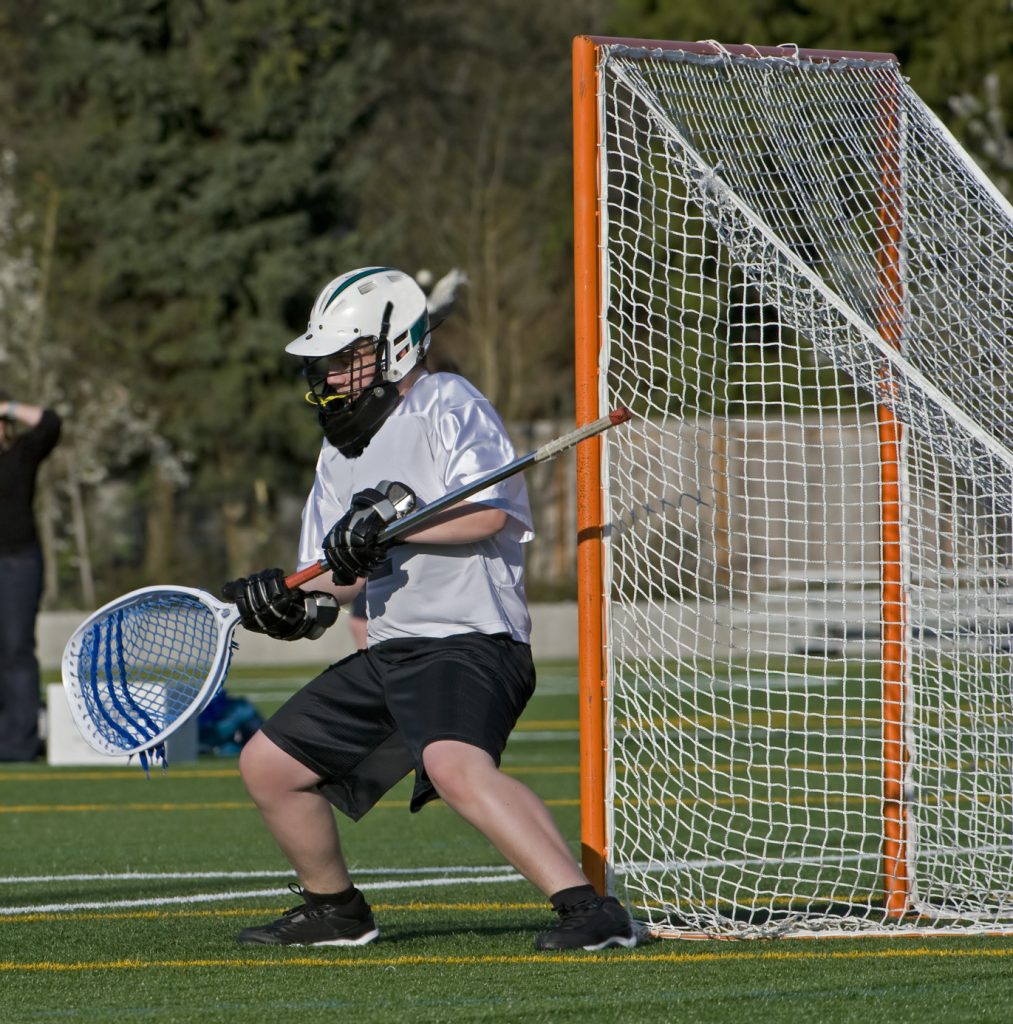
The goalie is the leader of the defense.
Even if we are not the captain of the team, or captain of the defense, our unique point of view on the field warrants that we assume a leadership role. In addition to being amazing at stopping shots, All-American goalies are also leaders and great communicators.
If you’re a coach, looking for players with this type of take-charge personality is a good place to start when thinking about who might make an excellent goalie on your team. However, if you’re a current goalie without these characteristics, don’t worry because I believe they can be learned.
New goalies often struggle with this aspect of the game as they’re not comfortable with communication or leadership. However to be an effective goalie these skills must be learned.
Here are some tips to improve your leadership and communication skills on the field –
- Know thy defense – As goalies we should know the defensive strategy better than anyone on the field. Because we’re responsible for telling defenders where to go and when to do it. Work with your defensive coach so you understand where the slides come from in every defensive set your team uses. Study and memorize these common defensive terms that all goalies should be using. I encourage my goalies to become “player-coaches” where they understand defense so well they could actually teach it.
- Use Names – It’s a proven fact that people respond better to their names. When you’re making your defensive calls, include the player’s name every time you can. “Damon, you’re hot” is much better than “#30 you’re hot” which is better than “who’s hot?”. If you’re playing on a new team, before starting ask for at least the defender’s names and memorize them.
- Be Loud – Yelling someone’s name or yelling a defensive call is useless if your team cannot hear you. After practice or even in between plays during a practice, ask your defenders if they can hear you. If the answer is anything but, hell yes, you need to be louder. Some goalies are blessed with naturally deep and booming voices. If this is not you, then you simply need to work on being loud during practice. Your voice will hurt at first, be it will make you a more effective goalie in the long run.
- Be the hardest worker – A great leader should show his leadership on the field and off the field, whether in the huddle or in the locker room. But if this not you, there are still ways to earn respect amongst your teammates. One of them is to lead by example. When I played goalie in college, there was nobody on the team who was going to outwork me. I was new to the position of goalie so I showed up 30 minutes before every practice to get in some extra goalie drills. As my teammates showed up to practice they saw that I was already there working my butt off. Be the hardest worker and you will earn your teammates respect. With this respect it becomes a lot easier to be a natural leader.
To have proper communication and leadership, a goalie must understand the defense better than anyone on the field. Only then are you in a position to communicate strongly and effectively and quarterback the defense to make stops.
“For goaltenders everything is playing between your ears. If you can believe it, you can do it. If you’re not confident when you start, it makes a difference” – PATRICK ROY
So much of being a great goalie is confidence. You can just see it in a goalie who’s full of confidence. With each save his/her confidence grows and they become quicker and faster.
But what happens when that confidence is gone? How do we get it back? Or how do we build it in the first place if its a youth goalie lacking confidence from the start.
Here are my tips for building a goalie’s confidence –
- Start Slow – Confidence in a goaltender is like building a house of cards. Putting the goalie into drills he or she is simply not ready for brings the entire house of cards down. Instead we start with the basics of making a save, get in shape, and drill outside of the cage to build the proper footwork. Think of each practice session as adding a card onto the house of cards. As you learn more and more about playing goalie, the confidence will build.
- Go Crazy For Saves – One technique for coaches and non-goalie teammates can use to help their goalie’s confidence is to go NUTS over every save. As a goalie coach I always do this. Even for what appear to be routine saves. I’ll give my goalie major props via yelling and getting excited. The encouragement feels good for the goalie and helps him get into the zone. Bottom line: make sure your goalie is getting plenty of love every time he or she makes a save.
- Visualization – Before every game and even before most practices, I’ll have my goalies listen to their favorite song on their phone and go through this visualization exercise. They ‘walk-the-line’ visualizing shots to different areas of the goal and making the right movements to make a save. The subconscious mind does not recognize the different between real and not-real. So by visualizing all the saves you’ll make our confidence grows and grows with each save.
- Forget the Past – As goalie’s we need to have horrible short term memory. Everyone is going to let in an easy goal, it happens. But the key is to forget it mentally and move on to the next shot. If you’re still pouting about the easy goal you let in a minute ago your head is not in the right space to make a save. Goalie’s must live in the moment and be able to forget the past. Always stay positive and don’t let a single goal bring down your house of cards.
There are several things about being a lacrosse goalie that are inherently hard.
The position is very demanding and there are some common problems that plague every goalie.
However, using the techniques I described in this post you should be able to overcome the most common lacrosse goalie problems that I see: being scared of the ball, having trouble on clears, not being an effective leader or communicator and lacking confidence.
Until next time! Coach Damon
Are there other problems you’re encountering in the cage? I’d love to hear about it in the comments.








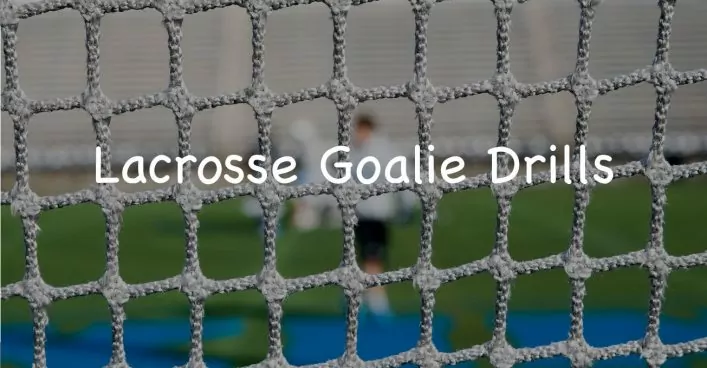 14 Amazing Lacrosse Goalie DrillsAug. 1, 2024
14 Amazing Lacrosse Goalie DrillsAug. 1, 2024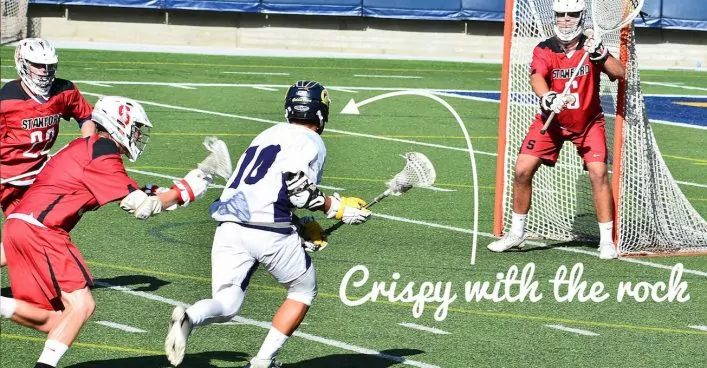 Quick Guide To Lacrosse Slang TermsApril 14, 2025
Quick Guide To Lacrosse Slang TermsApril 14, 2025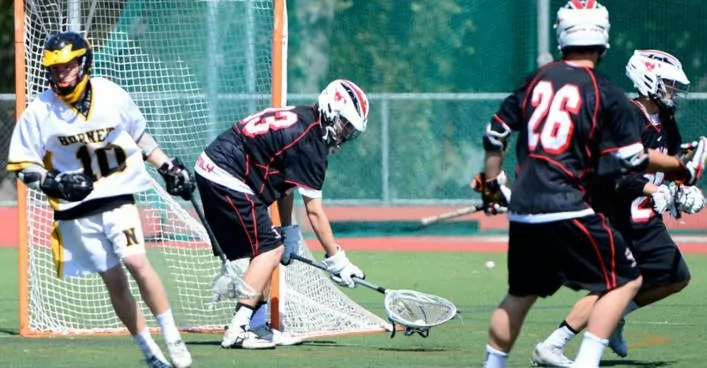 Lacrosse Goalies Rules To KnowJune 28, 2022
Lacrosse Goalies Rules To KnowJune 28, 2022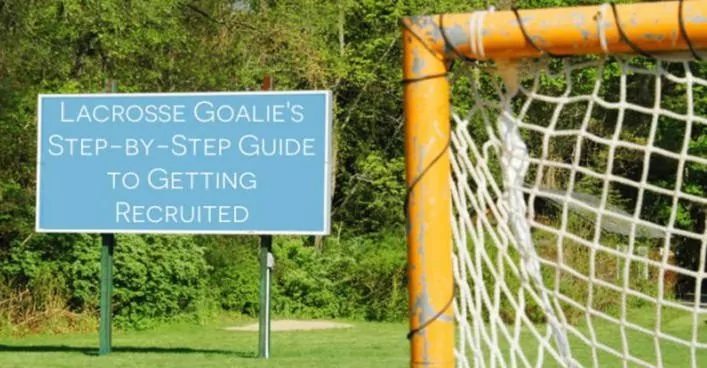 Lacrosse Goalie Step-by-Step Guide to Getting RecruitedFebruary 6, 2022
Lacrosse Goalie Step-by-Step Guide to Getting RecruitedFebruary 6, 2022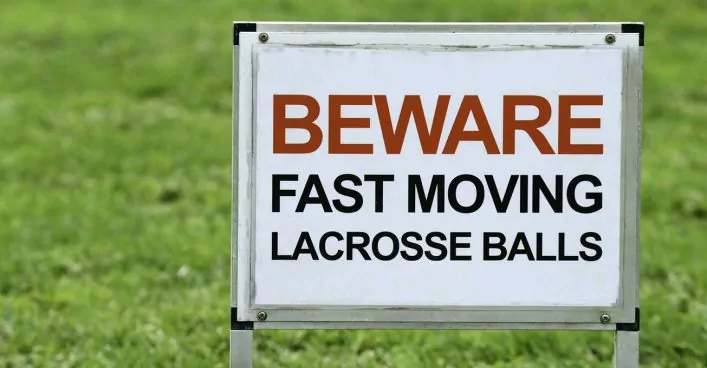 18 Lacrosse Goalie Drills to Improve Your GameApril 24, 2025
18 Lacrosse Goalie Drills to Improve Your GameApril 24, 2025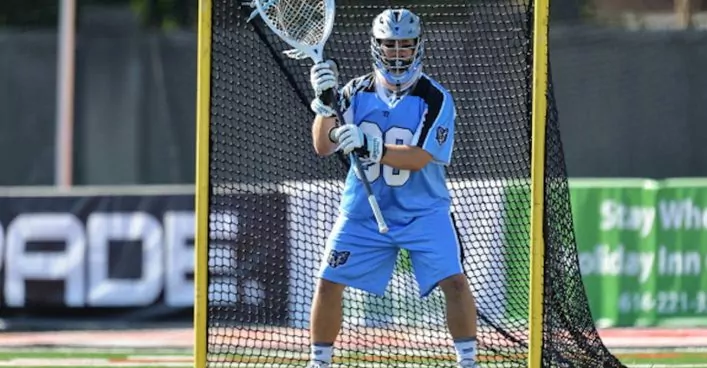 7 Elements of a Great Lacrosse Goalie StanceAug. 1, 2020
7 Elements of a Great Lacrosse Goalie StanceAug. 1, 2020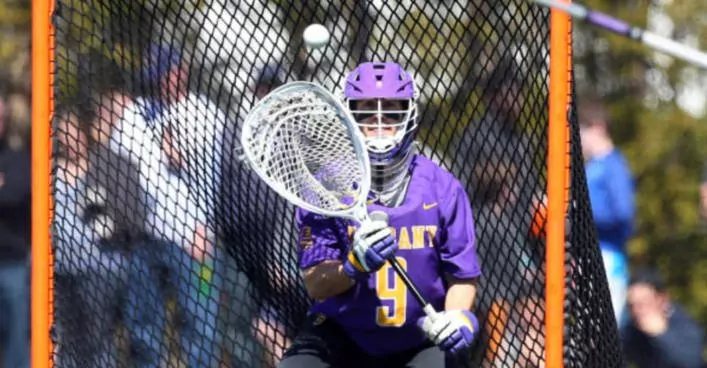 12 Lacrosse Goalie Tips To Take Your Game to the Next LevelSeptember 10, 2024
12 Lacrosse Goalie Tips To Take Your Game to the Next LevelSeptember 10, 2024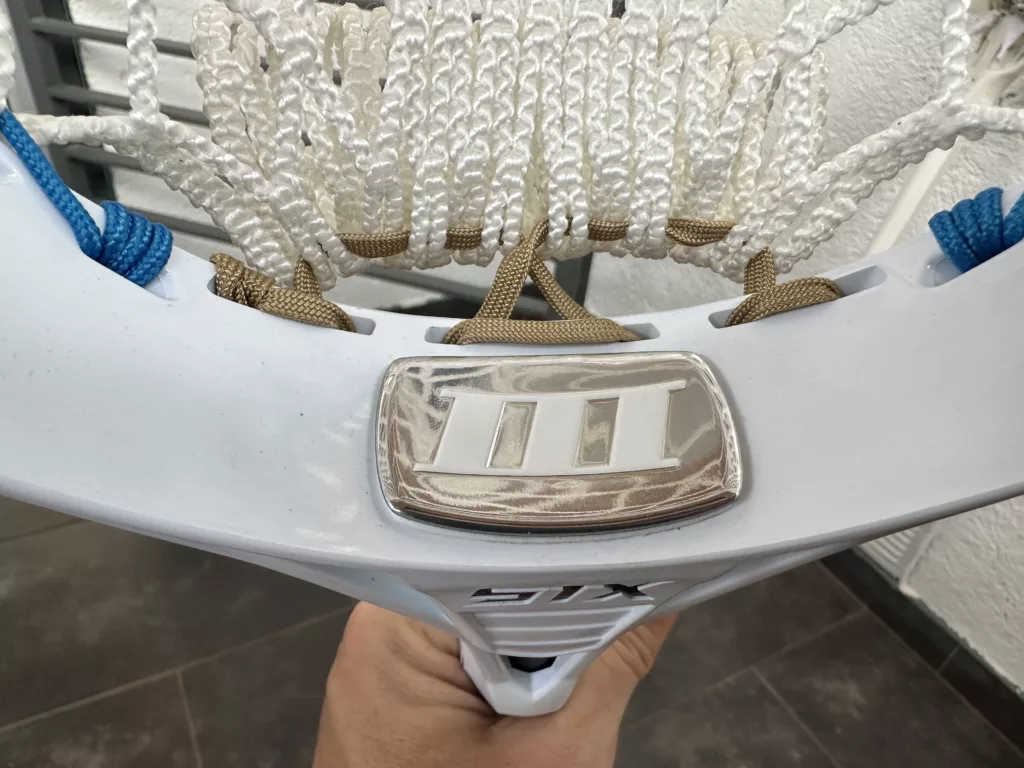 STX Eclipse 3 Goalie Head ReviewApril 24, 2025
STX Eclipse 3 Goalie Head ReviewApril 24, 2025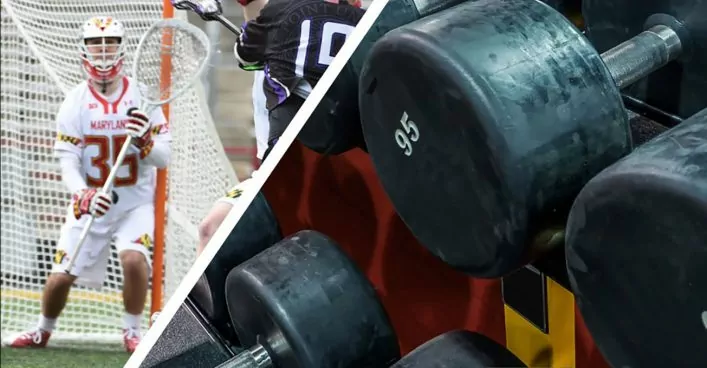 Lacrosse Goalie WorkoutAug. 12, 2019
Lacrosse Goalie WorkoutAug. 12, 2019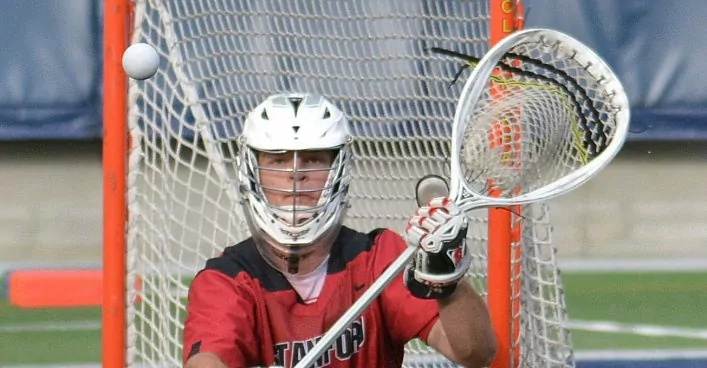 The Basics of Making a SaveJune 29, 2021
The Basics of Making a SaveJune 29, 2021


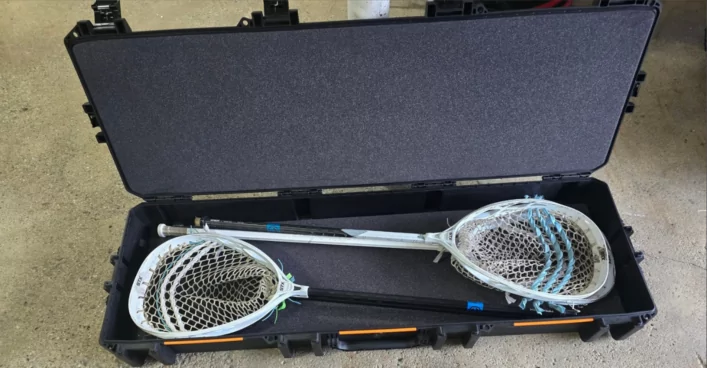

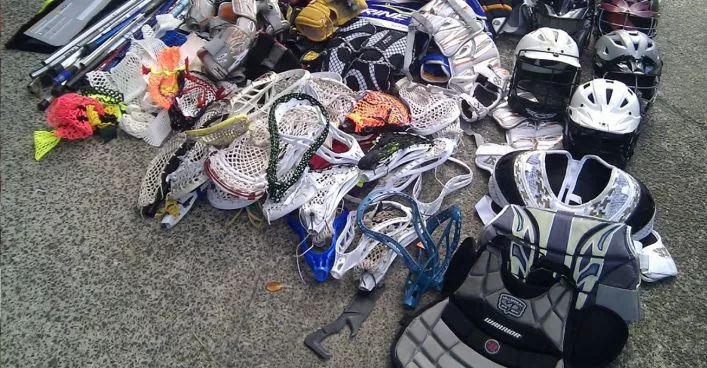

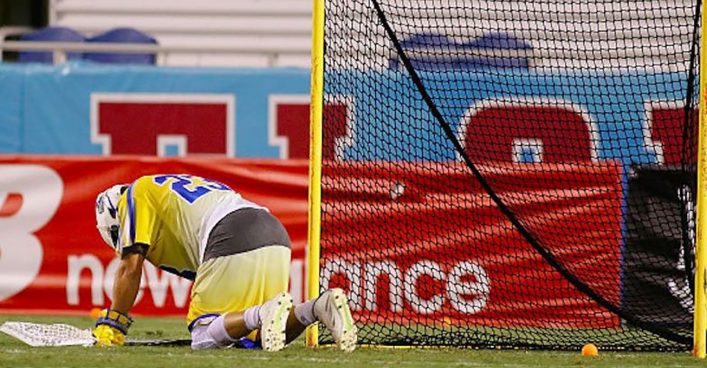
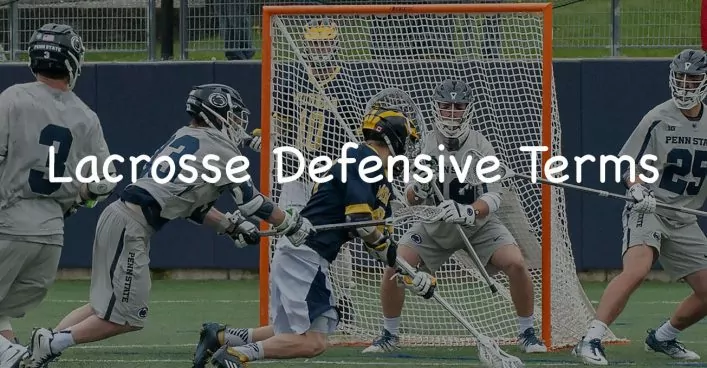
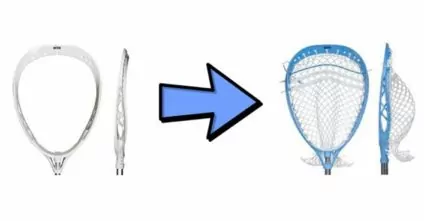
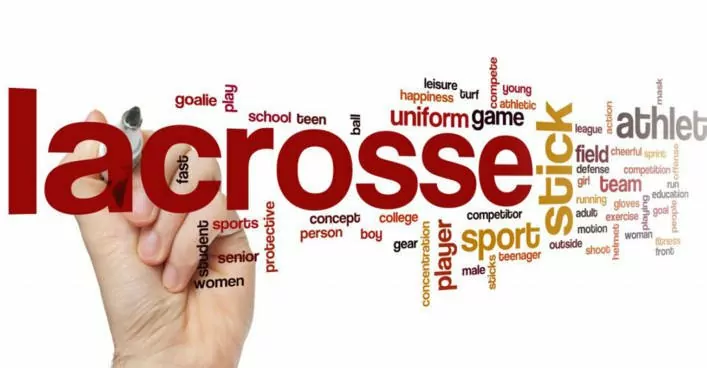





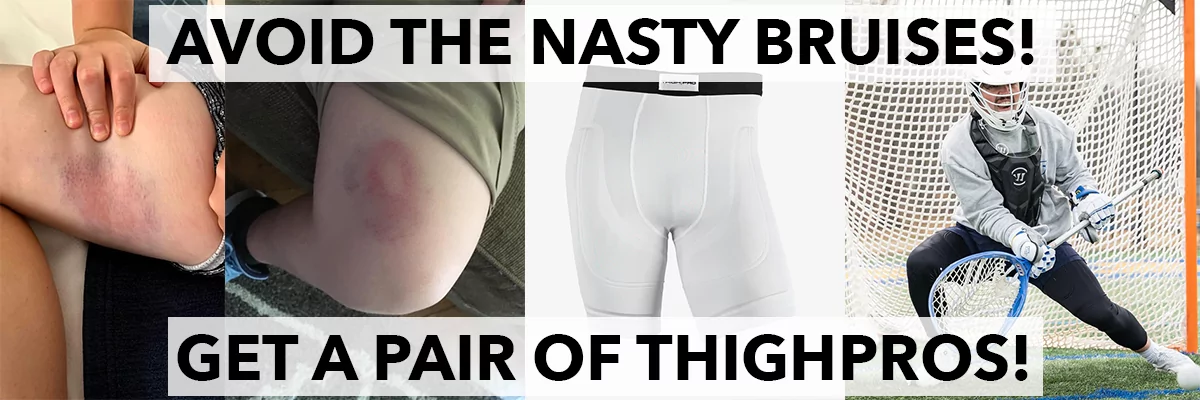

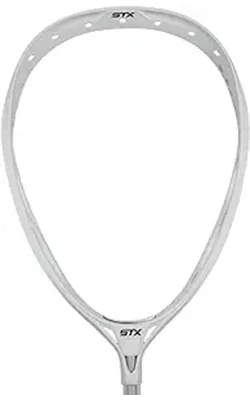

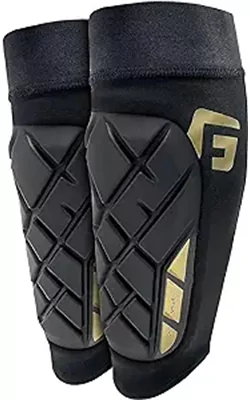
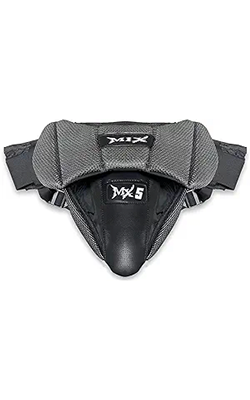

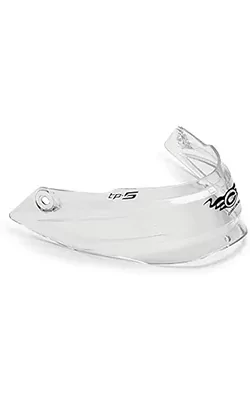
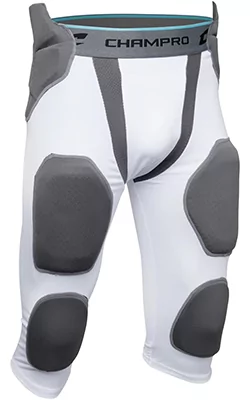

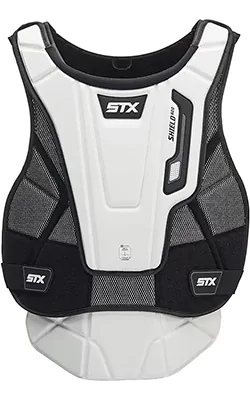

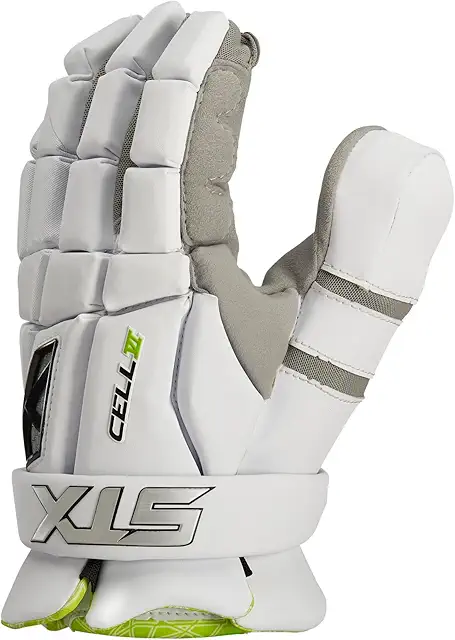
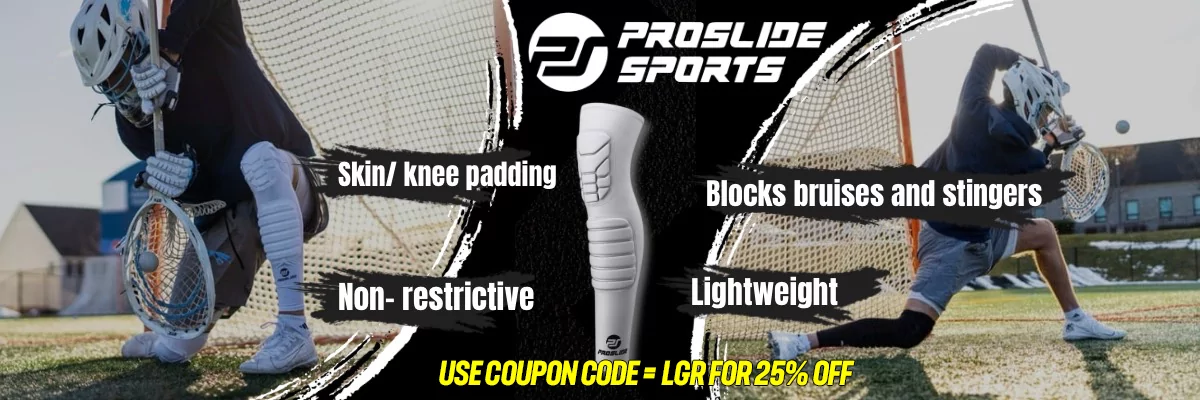





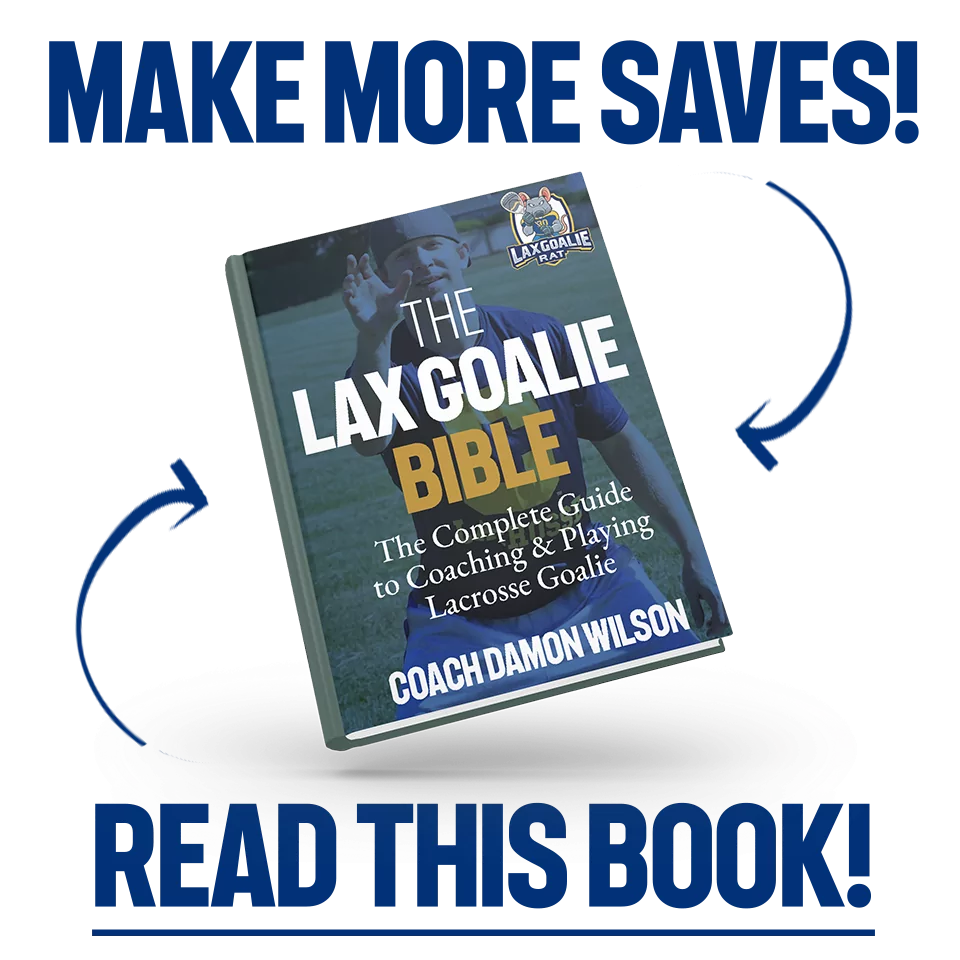
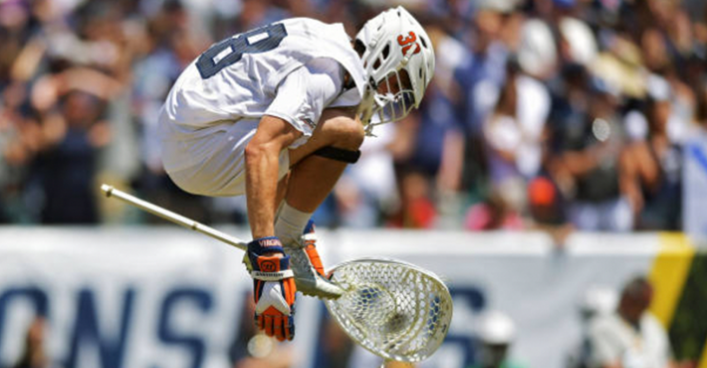
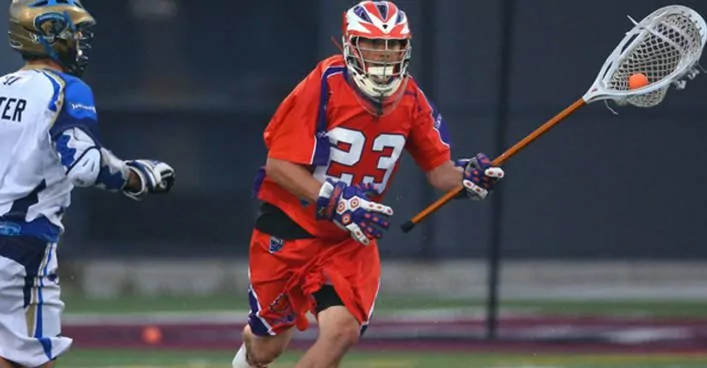


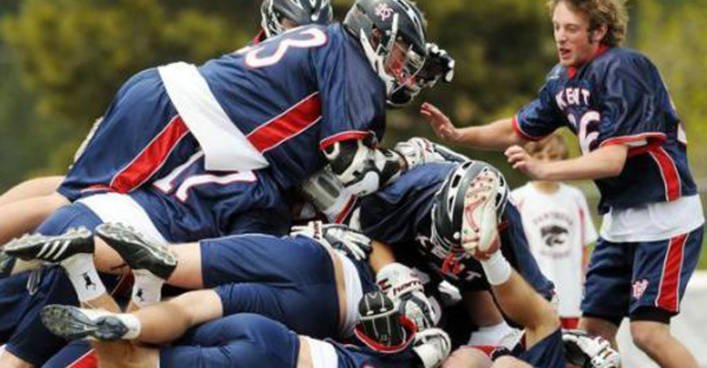
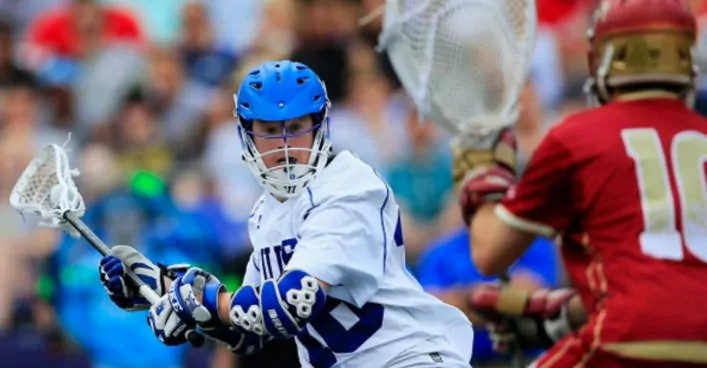









At practice i have an easy time stopping shots but once i get into goal, i can’t stop anything. Its like i lose focus right before the attacker shoots and i can’t keep track of the ball.
Hi Sam – Thanks for reading. Let me clarify your question. Are you saying that you have good practices but that success doesn’t happen in the games? Thanks Coach Damon
My daughter has this exact issue-her saves are significantly decreased when she hits the playing field vs. practice field. When I ask her why she thinks this happens she says it’s because “the games count” so I am guessing we need to work on her mental game a little. Any advice?
Yeah I’d agree the mental game needs work. She should try to focus on the process of playing in games rather than playing for a result.
For example, if there was a balance beam on the floor it’d be easy to walk across. If that balance beam was 50 feet in the air, it’s hard to walk across because you’re thinking about falling when in fact its the same exact balance beam that was on the ground. Same goes for lacrosse, you’ve really got to focus on the saves and not the pressure associated with games. It’s tough but it comes with experience.
Also make sure she’s getting a good pre-game warmup. Sometimes I find goalies don’t get warmed up the same way as they do in practice and never find their rhythm in games.
Hope that helps!
Be sure to check out this post I just published on this topic – Overcoming Lacrosse Goalie Anxiety
Hey Coach Damon,
Every time I get in the goal for rips i tend to save most of the shots but during more realistic drills In which I have Defense I don’t save as many. Any advise?
Hi Josue! Focus on the ball like a hawk. Sounds like defensive commotion is causing a lapse in concentration. Goalies should always communicate with their defensive but not at the cost of losing concentration. Read the post I did with Jamie Faus he talks about not over-talking so he can concentrate on breathing, staying relaxed and making saves. Hope that helps.
Hey Coach,
There’s a second goalie on our team who’s younger than me and so much better. It destroys my confidence and I’ll often just ask our coach to put him in because I’m terrible and can’t save anything. What can I do?
Hi William – Listen, anytime you find yourself comparing your skills to other athletes (including those on your own team), you’re not helping your confidence one bit. You’re focusing on the wrong things. Stop putting this other goalie on a pedestal, you’re only intimidating yourself with that faulty thinking. You must get back to seeing yourself as a top goalie. And if you don’t think that’s true then put in the work to get better. Outwork everyone on the team until you ARE a top goalie. That’s what you can do. Hope that helps! Damon
My coaches say I’m a really good goalie but I feel that I’m terrible and so many other people on my team could do better. Any drills or tips that can help me out?
Hi Carter – If your coaches are saying you’re a good goalie you probably are a good goalie. But like most goalies we’re our toughest critics. You’ll build up the confidence with time and experience. Search lacrosse goalie drills on this site and a few posts will pop up with drills and tips to follow. Good luck.
I get so mad whenever I let in a shot. Nearly bent my shaft after whacking the goal when one of the really bad shooters scored on me in practice today. Any anger-management tips you’ve learned over the years?
I’m a freshman in high school and this is my first year ever playing in goal. I’ve been starting varsity for my high school and right now we aren’t doing so hot. I have trouble with low shots and I know I just need to get my body behind the shot, do you have any drills that would help with tracking the ball when the attack is ready to shoot?
Hi Erin! Congrats on stepping into goal! Here’s my post on saving low shots. There’s some tips in there that will help you track low shots.
could you give me some tips on how to take huts as a goalie like win i make a save but it hit my arm or leg were there no pads a it hearts is there a way to make it heart less or get to the shot faster?
I’m 13 and i play in 14 u about to play hy school and i want to make my game better that’s why i asked.
sorry for the spelling .
Coach my son is a sophomore and going to start this season for his varsity high school team, so he got a new head pre laced but has had issues getting it to react as his preferred one. The passing of the ball is the problem the seem to come out low on him. He has screwed around with the shooting strings any advice?
Hey David! Usually if the stick is releasing low that means the shooting strings are too tight. They “grip” the ball too much as it travels up the channel and the result is a low release. Try loosening the shooting strings starting wtih the lowest one.
Thanks for sharing,
It’s a very informative and interesting article.
I really enjoy your content.